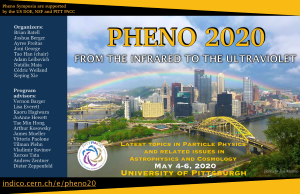Speaker
Description
Oscillation in the bispectrum of density perturbations uniquely signifies the production of heavy fields during inflation, making it an important probe of physics at high energy scales. However, the magnitude of this non-gaussianity suffers Boltzmann-like suppression in models with minimal interaction between the inflaton and heavy fields, limiting the range of masses that can be probed close to the inflationary Hubble scale $H$. In the case of fermions and gauge bosons, it has been shown that a certain non-minimal derivative coupling of the inflaton to the massive field can lead to the development of a chemical potential $\lambda$. This boosts particle production, and hence the signal strength $f_{\text{NL}}$, by many orders of magnitude. We extend this chemical potential mechanism to the case of massive complex scalar fields. We show that $f_{\text{NL}} \sim O(10^{-2})-O(1)$ can be obtained for a large parameter space through tree-level diagrams. An important feature of the model is that detectably large signals can be obtained for masses up to $O(\lambda) >>H$, which is significantly larger than the case of other spin fields. We outline a procedure to extract the effective mass of the heavy field from the non-Gaussian signal, which is generally difficult in this mechanism due to the presence of additional parameters. Finally, we present an analysis of this mechanism in the curvaton paradigm.
Summary
Signal of heavy complex scalar fields in primordial non-gaussianities
